AFTERWORD
Thanks so much for reading our little book. If Comma Sense was half the fun to read that it was to write, please accept our apologies for the cramps now paralyzing your face. We feel your pain.
Having finished this book makes you an official Grand Poo bah and Passionate Pasha of Punctuation. Yay! And this, of course, means that you are now likely to begin writing a good deal more often and more confidently than you used to. Yay and yay again! There are far too few writers these days (although we understand how unlikely it is that you share that sentiment if you happen to be reading this in one of those ten-acre megabookstores).
Write on, we say! Write away! Have at it!Letters! Memos! Post-its! E-mails! Essays! Stories! Ransom notes! Wait. Scratch that last one, please: Always use your ability to punctuate properly for good, not for evil. After all, you dont want to wind up like Batmans arch nemesis, The Riddler, do you? Remember how that quintessentially querulous querier ended up wearing giant question marks plastered all over his, um, body-tard? All right, then.
One of the very best ways to employ your newfound punctuational prowess is to write to us: Rich (a.k.a. Attila the Pun, Conan the Grammarian, the Viceroy of Verbivores) is always happy to take a moment away from his prodigious authoring and lecturing to respond to an inquiry or comment. And John (a.k.a. Hey You, Mr. Shore, The Giant Who Feeds Us) is always happy to take a moment away from his prodigious well, couch-sitting and cat-petting to do the same.
Rich can be reached at: richard.lederer@pobox.com
John is at: johnshore@sbcglobal.net
And now, partner in punctuation, the time has come for us to tip our hats, point our trusty steeds westward, and, with our heads held high, go writing off into the sunset.
CHAPTER 1
THE PERIOD

There are only three ways a sentence can end
With an exclamation point:
You won!
With a question mark:
You won?
Or with a period:
I know you won, but Im having trouble believing it.
Thats it. Those are your choices. Every sentence thats not an exclamation or a question must end with a period. And because people are by and large too proud to ask too many questions and too shy to go around hollering all the time, the vast (not the half-vast) majority of sentences are what are called declarative statementsstatements that just say something and therefore end in a period.
It is difficult to think of any other instance in life in which something as small as the period carries so much clout. Its a mark so dinky that farsighted fleas court it. Yet virtually any declarative statementa picturesque description, a mild directive, a thoughtful observation, or a wandering exposition that starts out as if its going somewhere specific but about halfway through makes clear enough that if it ever does pull in anywhere, itll do so carrying the corpses of whatever readers were unlucky enough to have climbed aboard it in the first placemust stop whenever the period says its time.
Verily is the period the crosswalk guard of our language.
If only there were any famous crosswalk guards, we could use one of them right here as a metaphor for the period. But, of course, most of us never give a thought to those stalwart sedan stoppers except when were watching them from inside our cars, feeling weird about how much we, too, want to wear a cops hat and a bright orange vest and hold up a big sign stopping all the cars so little kids can be on their scholarly little way.
Thats why we resist making crosswalk guards famous: It ticks us off that they have better jobs than we do. Why should they get any more glory? Theyve got their hats, their signs, their cool sashes, their white gloves. Thats enough. Any more, and theyll feel empowered enough to start shooting out our tires to stop us.
No, as a metaphor for the period the crosswalk guard wont do at all.
We need someone small. Someone powerful. Someone who at first seemed to have no potential. Someone with attitude. Someone with finishing power.
We need Seabiscuit!
Hes small: Sizewise, Seabiscuit was closer to a merry-go-round horse than a stakes-hogging racehorse.
Hes powerful: In a much-ballyhooed match race, Seabiscuit spotted the stately War Admiral whole hands and still whipped him.
Even equine experts didnt think that the plucky little horse had any potential: There was a time when Seabiscuit couldnt be given away. (Just as, in the beginning, no one thought the period would be able to reach the finish line, let alone stop the most puffed up of sentences. The giant, imposing question mark was supposed to be the punctuation leaderand you see how that turned out.)
Hes got attitude: Seabiscuit liked to torment his fellow racehorses by always just beating them, (just as the period seems to enjoy taunting letters and words by letting them think they might have a chance of ending up ahead of it. Its wrong to behave that way, of coursebut sometimes thats the kind of attitude that makes a winner a winner.)
Hes got finishing power. Seabiscuit surged to the finish line first in an awesomely high percentage of his races.
And finally, just as Seabiscuit needed a strong and thoughtful rider in order to do his best (Johnny Red Pollard and Biscuit had a special bond), so the period needs a strong and thoughtful writer to do its best. And that writer is you, friend. So get that foot up in that stirrup, swing that other leg up and over, and lets show these whippersnapper words how the little boys do it.
 A period marks the conclusion of any sentence that doesnt end with an exclamation point or a question mark:
A period marks the conclusion of any sentence that doesnt end with an exclamation point or a question mark:
Singing with utmost exuberance and abandon and filling in the music-only parts with dance steps reminiscent of how impossible it was to even walk in disco shoes, Bert delivered a karaoke version of K.C. and the Sunshine Bands Get Down Tonight that was a testimony to what it was about disco in the first place that compelled so many of us to drop out of high school.
Today Einsteins brain is stored in formaldehyde in a jar, in the hopes that future scientists will be able to figure out what exactly theyre supposed to do with a brain in a jar.
 In U.S. punctuation, periods alwaysand we do meanalwaysgo inside quotation marks.
In U.S. punctuation, periods alwaysand we do meanalwaysgo inside quotation marks.
They do things backwards in Britain, like driving on the wrong side of the road and serving warm beer and cold toast. But the Brits system of placing the period outside quotation marks actually makes more sense. Still, we live in the U.S. of A., so well say it again:
 In U.S. punctuation, periods alwaysand we do mean alwaysgo inside quotation marks:
In U.S. punctuation, periods alwaysand we do mean alwaysgo inside quotation marks:
What I remember, said Carl as he lay upon his psychotherapists couch being suddenly filled with early childhood memories, is sitting in the middle of the floor of our old family room, wearing those white, plastic, over-the-diaper parity things. It was mortifying to have to sit around all day, looking like the fuse on a whipped cream bomb.

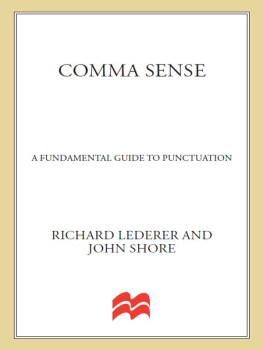
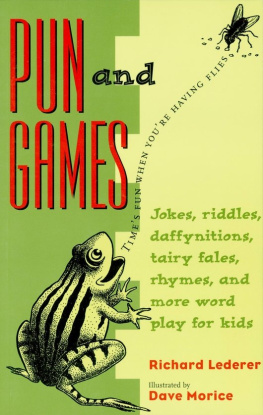
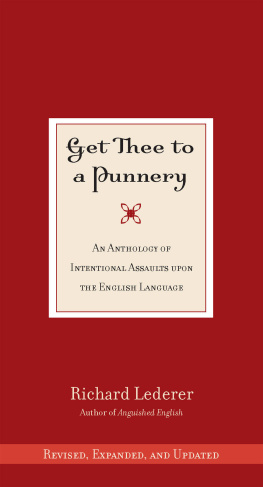
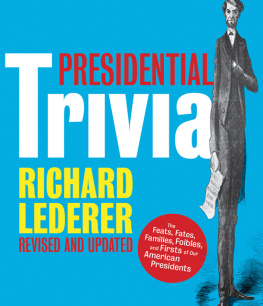
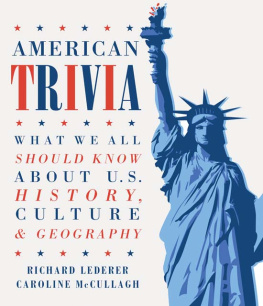
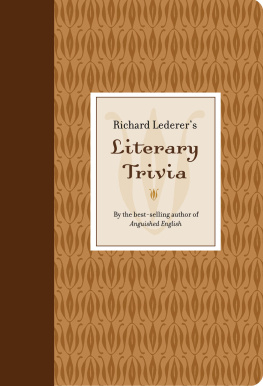

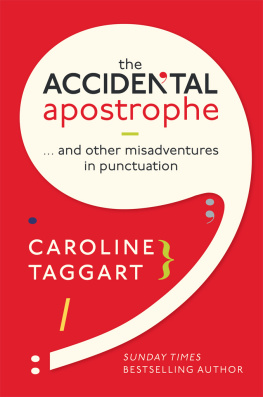
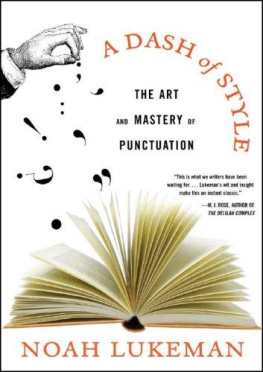
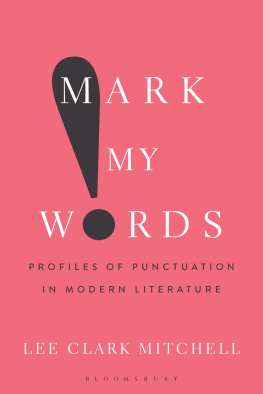
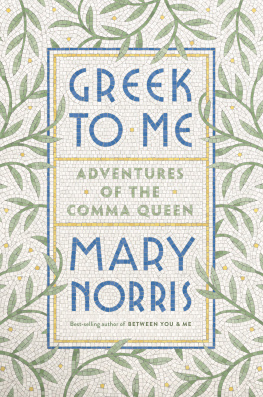
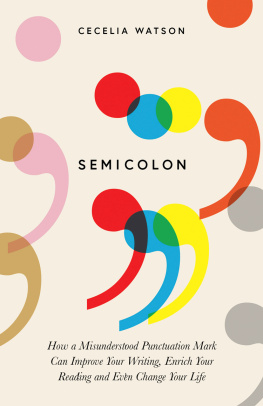
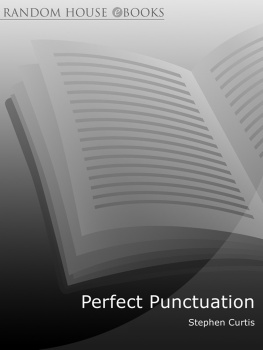
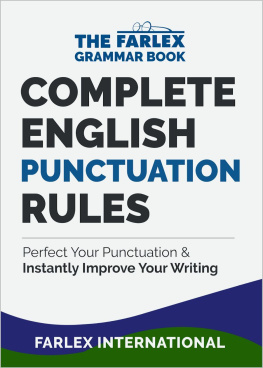
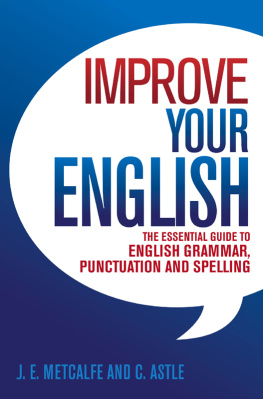
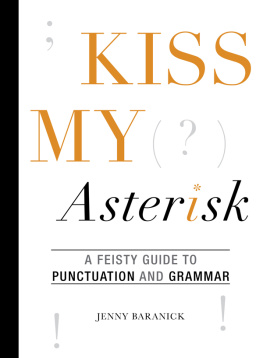
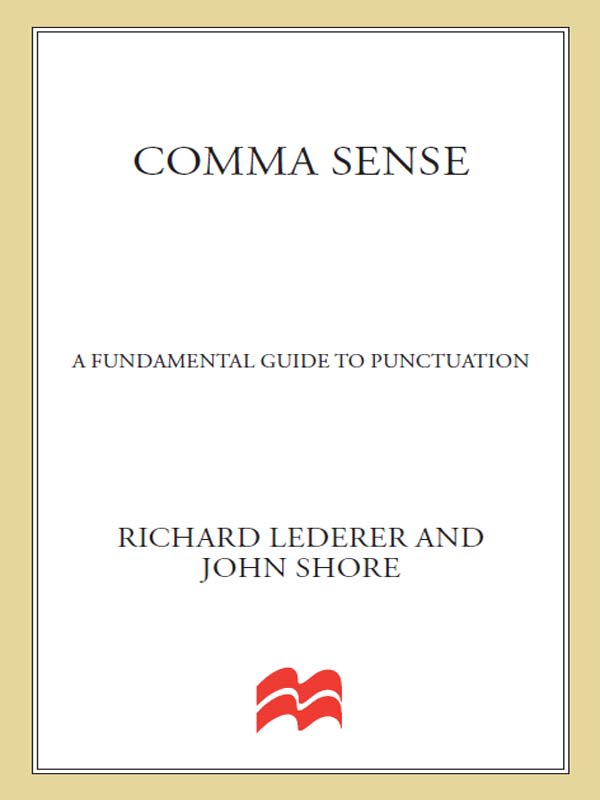

 A period marks the conclusion of any sentence that doesnt end with an exclamation point or a question mark:
A period marks the conclusion of any sentence that doesnt end with an exclamation point or a question mark: